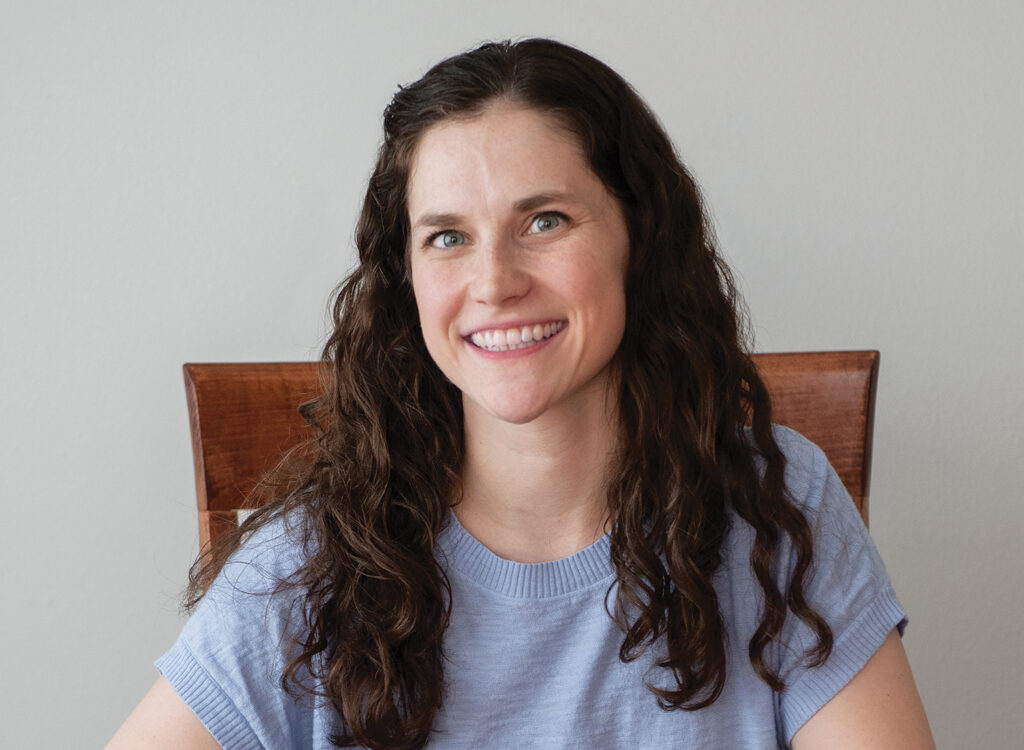A Closer Look: Rubén Vázquez
Chief diversity, equity and inclusion officer, United Way of Central Iowa

MICHAEL CRUMB Oct 25, 2022 | 2:44 pm
7 min read time
1,675 wordsA Closer Look, Arts and Culture, Diversity, Equity and InclusionRubén Vázquez is the United Way of Central Iowa’s first chief diversity, equity and inclusion officer and started the position last month. He has more than 20 years of experience in social justice, advocacy and civic engagement, and has worked to advance DEI at personal, institutional and systemic levels in the nonprofit, for-profit, educational and government sectors.
But it’s not his work experience that inspires him to keep doing his work. Vázquez says it is his life story and that of his children, as well as events like the slaying of George Floyd in May 2020 just blocks from where Vázquez lived at the time in Minneapolis, that motivate him to create a more equitable world for all. Before joining the United Way of Central Iowa, Vázquez served as vice president of equity, people and culture at Minnesota Community Care, a community health care organization in St. Paul, Minn.
How did your prior positions and experience prepare you for your new role with the United Way of Central Iowa?
I would say it’s broader than those positions. I would say it’s more so about my personal experience. It’s a combination of those, but primarily it has been about my lived experience. I am an immigrant. English is my second language. I am a person of color. For the first seven or eight years when my family immigrated here from Mexico City we were undocumented. So I have that experience. There have been a couple of instances where I have gotten pulled over and instead of asking for my driver’s license and insurance information, I’m being asked for my green card. It’s never assumed I’m a U.S. citizen. Walking into Target, I have to teach my kids when you shop, you’re biracial so don’t hold anything in your hands. You grab a cart and everything goes in there. Even if you don’t buy anything, at least buy a pack of gum or something because it’s been my experience as a person of color, I have been asked if they can see what’s in my pockets because it’s assumed that because I didn’t buy anything that I have stolen something. So what has prepared me for this position is not so much my professional career, but really more my personal experience.
This is a new position, so there isn’t a model to build from. So what are your goals for this position?
I don’t have a model, so we have to start from scratch. But also there is an opportunity that this is a new position and we’re starting with a blank canvas, so let’s put it together. The way I am approaching this is it is going to be a collaboration with other members of the leadership team, the rest of the staff, our community members and our partners. What are some of those areas we need to continue to build on, and what are some of those gaps we need to focus on? I don’t want to build a plan that is based on me. I want a plan that is a collaboration so that the ownership is on everyone, not just one individual.
What are some milestones you can look to as you help the community on its DEI journey?
I’m putting this work through three different spheres. The individual, the institutional and the systemic. It’s easy to say we need to fix the system. Great. Yes, we do, but in order to do some of that work at that level, we need to take a few steps back and actually work on ourselves first. Some of my milestones will be working with the staff to develop what that engagement plan is going to look like so that they, as individuals, can start building the awareness of who they are and the role they plan within this institution. Then taking that and building that from an institution perspective and say, who are we? What is our role in the community? How do we lead? How do we follow? How do we defer? And then understanding what is our level of voice in the community to start changing those systems that continue to be a barrier for some of our communities.
How do we as a community overcome some of our inherent biases and get people to take that deep look at themselves?
There is no magic wand, and unfortunately to get to that point it’s going to take a lot of work and a lot of time and a lot of patience. In real estate the key is location, location and location. In the world of DEI, it’s really about relationships, relationships, relationships. You have to invest the time and energy to build those relationships within those communities, and sometimes it’s going to take even more time with those folks who nod their heads and then they go back to their bubble of security and continue to go out and do their own thing. It’s really about continuing to have a conversation with those individuals. It’s hard. It’s difficult, especially for people of color who are experiencing this all the time. When George Floyd was murdered, it was literally almost 10 minutes from where I lived. Immediately after that happened, all these companies, organizations and groups started coming out wanting to help, saying, ‘Can you believe it?’ And myself and other people of color were like, we have been saying this forever. Unfortunately something like that had to happen for you to pay attention. In addition, if I am going to push you and ask you to be vulnerable with me to go through this journey and have those difficult conversations, it is equally important for me to be vulnerable with you because that starts building trust between you and I so that then you and I can have those difficult, uncomfortable conversations.
Why is it important for the business community to engage in this work?
We have to start thinking about this from a proactive way instead of a reactive way. We saw it with George Floyd. What happened when that happened? Everyone was reacting, although everyone of color was saying there is a fire coming and people were just not listening. The message I would send to decision-makers is it’s hard work, yes. It’s messy work, it’s uncomfortable work, yes. But don’t turn your back on it. If anything, push through it.
What should the business community be doing?
If you are bringing in somebody to do this work, but they are two to three levels down from those C-suite-level decision-makers, that is sending a message of the level of priority that exists within your organization. Where does this land? It almost feels like they are checking off the box to make themselves feel good. Those monthly or yearly lunch-and-learns, and there’s no follow-up, you’re just checking it off the box. And if that is your intent, OK, cool, but own that. Own that and be like, I’m doing this because I’m supposed to be doing this. But if you’re serious in this work, then invest in this work. Investment looks like money and people. If you are serious about this, you are going to make it a priority and it’s going to require you to take a look at yourself and take a look at your leadership team and your organization and be like, we have some work to do.
What does that look like?
It could be like you’re not just bringing in one person to do the work for 400 people. You need to be intentional about building a team to do this work. Set a budget to do this work. It is not incorporated into the HR space. It’s going to have its own separate line item where this is for DEI. I would also say it’s looking like challenging your leadership. Maybe incorporate it into their performance. Tie it to their performance. Tie it to their bonus. Tie it to their goals. Because otherwise there is no incentive, especially at those very high levels of an organization.
Should there be metrics that gauge success of this work?
There should be metrics because the data is going to tell you whether things are working, and those metrics should be developed based on the needs of an organization. At the same time, it’s sometimes difficult to measure the success of this work. The way of measuring success can be both qualitative and quantitative. It’s a lot easier to measure quantitative because you just have the numbers. Qualitative is a lot more difficult, but I believe it’s still doable.
What drew you to this position?
I felt I was in a position in my life where I could and needed to do this work. The Twin Cities, it’s a great place to live, but there is so much of this happening that to a certain extent it has gotten watered down. So I did not feel I was having the same impact that I knew I could. And this organization, the community, this position, I felt it could provide me with the opportunity to continue to make an impact in the community, to be able to walk into a community and be an advocate for the community and help change the community.
Is there a book you’ve read that other people should read?
“White Fragility” by Robin DiAngelo. It’s an amazing book. Here’s why I think it’s important for people, especially people with the dominant culture, to read because she does a great job of speaking from that experience. She’s a white woman, she identifies as a white woman and she speaks to that audience, especially to the dominant culture, as to everything that is happening in our world right now. It’s easy to put it on a group of people; the issues that exist are really all over, and she does a really good job to push people of the dominant culture to think about that and see the role they play in the system we live in.










